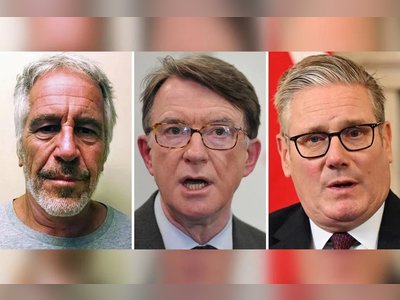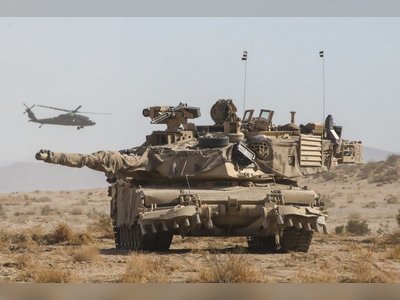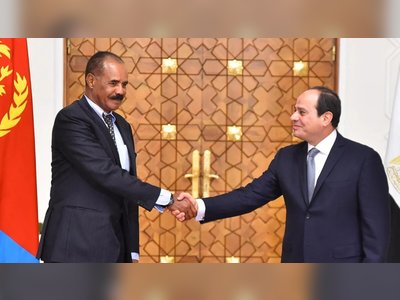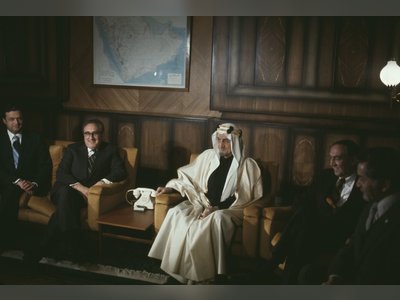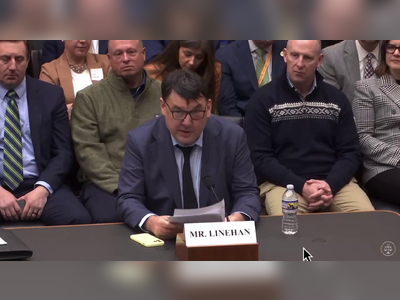
Breakthrough in Gaza: Israel and Hamas Agree to Ceasefire and Hostage Release
Qatar mediates critical deal leading to a potential halt in longstanding hostilities between Israel and Hamas, focusing on humanitarian relief and political negotiation.
In a significant diplomatic breakthrough, Qatar has announced a ceasefire agreement between Israel and Hamas, alongside a highly anticipated exchange of hostages and prisoners.
This development, confirmed by Qatari Prime Minister Sheikh Mohammed bin Abdulrahman bin Jassim Al-Thani, marks a potential turning point in the hostilities that have engulfed the Gaza Strip since October 7, 2023.
While Qatar announced that a deal had been reached, the Israeli leadership expressed cautious optimism, indicating that some details remain unresolved.
Nonetheless, Israeli President Isaac Herzog, whose position is largely ceremonial, endorsed the agreement as a vital step towards the release of hostages captured during Hamas's audacious attack on Israel.
Prime Minister Benjamin Netanyahu's office indicated hopes for finalizing these critical details imminently.
Sheikh Mohammed confirmed that the ceasefire would commence on Sunday, with the initial phase focusing on the release of 33 hostages by Hamas.
This group includes civilians, female recruits, children, and elderly individuals.
In exchange, Israel would release a number of Palestinians held in its prisons.
The news of the agreement was met with mixed emotions.
In Tel Aviv, demonstrators advocating for the hostages’ return rejoiced at this tentative resolution.
In the battered Palestinian territory of Gaza, celebrations erupted at the prospect of an end to the fifteen-month-long conflict that left many communities in ruins.
Hamas credited the ceasefire to the 'legendary steadfastness' of the Palestinian people and their resistance against Israeli military actions.
The persistent conflict has drawn considerable international attention and concern over humanitarian conditions in Gaza.
Mediation efforts led by Qatar, with significant involvement from Egypt and the United States, have played a pivotal role in brokering this agreement.
US President Joe Biden has welcomed the breakthrough, emphasizing its potential to improve the humanitarian situation in Gaza and reunite families with their loved ones.
The agreement's timing is critical, coming just days before President-elect Donald Trump's inauguration, with both administration teams reportedly involved in the negotiation process.
The conflict, ignited by Hamas’s largest-ever attack on Israel on October 7, claimed 1,210 Israeli lives, primarily civilians, and saw 251 captives taken.
Of these, 34 hostages remain unaccounted for, presumed deceased, according to Israeli military reports.
The Palestinian death toll, as reported by health authorities in Gaza, stands at over 46,000, predominantly civilians, a figure validated by the United Nations as credible.
Egyptian President Abdel Fattah El-Sisi and international leaders underscore the need to expedite humanitarian aid delivery into Gaza.
The anticipated reopening of the Rafah border crossing with Egypt aims to facilitate this critical supply chain.
Talks are reportedly ongoing to ensure aid can reach those most in need.
The agreement also involves delicate negotiations over the status of future ceasefire conditions, Israeli military withdrawals, and the ongoing humanitarian crisis.
Despite the proposed ceasefire, Israel’s leadership remains firm in its opposition to any enduring role for Hamas in governing Gaza, underscoring profound political and security challenges ahead.
As the international community watches, this ceasefire agreement is seen not only as a tentative pause in one of the region's deadliest conflicts but also as an opening for renewed diplomatic engagement and humanitarian relief.
This development, confirmed by Qatari Prime Minister Sheikh Mohammed bin Abdulrahman bin Jassim Al-Thani, marks a potential turning point in the hostilities that have engulfed the Gaza Strip since October 7, 2023.
While Qatar announced that a deal had been reached, the Israeli leadership expressed cautious optimism, indicating that some details remain unresolved.
Nonetheless, Israeli President Isaac Herzog, whose position is largely ceremonial, endorsed the agreement as a vital step towards the release of hostages captured during Hamas's audacious attack on Israel.
Prime Minister Benjamin Netanyahu's office indicated hopes for finalizing these critical details imminently.
Sheikh Mohammed confirmed that the ceasefire would commence on Sunday, with the initial phase focusing on the release of 33 hostages by Hamas.
This group includes civilians, female recruits, children, and elderly individuals.
In exchange, Israel would release a number of Palestinians held in its prisons.
The news of the agreement was met with mixed emotions.
In Tel Aviv, demonstrators advocating for the hostages’ return rejoiced at this tentative resolution.
In the battered Palestinian territory of Gaza, celebrations erupted at the prospect of an end to the fifteen-month-long conflict that left many communities in ruins.
Hamas credited the ceasefire to the 'legendary steadfastness' of the Palestinian people and their resistance against Israeli military actions.
The persistent conflict has drawn considerable international attention and concern over humanitarian conditions in Gaza.
Mediation efforts led by Qatar, with significant involvement from Egypt and the United States, have played a pivotal role in brokering this agreement.
US President Joe Biden has welcomed the breakthrough, emphasizing its potential to improve the humanitarian situation in Gaza and reunite families with their loved ones.
The agreement's timing is critical, coming just days before President-elect Donald Trump's inauguration, with both administration teams reportedly involved in the negotiation process.
The conflict, ignited by Hamas’s largest-ever attack on Israel on October 7, claimed 1,210 Israeli lives, primarily civilians, and saw 251 captives taken.
Of these, 34 hostages remain unaccounted for, presumed deceased, according to Israeli military reports.
The Palestinian death toll, as reported by health authorities in Gaza, stands at over 46,000, predominantly civilians, a figure validated by the United Nations as credible.
Egyptian President Abdel Fattah El-Sisi and international leaders underscore the need to expedite humanitarian aid delivery into Gaza.
The anticipated reopening of the Rafah border crossing with Egypt aims to facilitate this critical supply chain.
Talks are reportedly ongoing to ensure aid can reach those most in need.
The agreement also involves delicate negotiations over the status of future ceasefire conditions, Israeli military withdrawals, and the ongoing humanitarian crisis.
Despite the proposed ceasefire, Israel’s leadership remains firm in its opposition to any enduring role for Hamas in governing Gaza, underscoring profound political and security challenges ahead.
As the international community watches, this ceasefire agreement is seen not only as a tentative pause in one of the region's deadliest conflicts but also as an opening for renewed diplomatic engagement and humanitarian relief.
